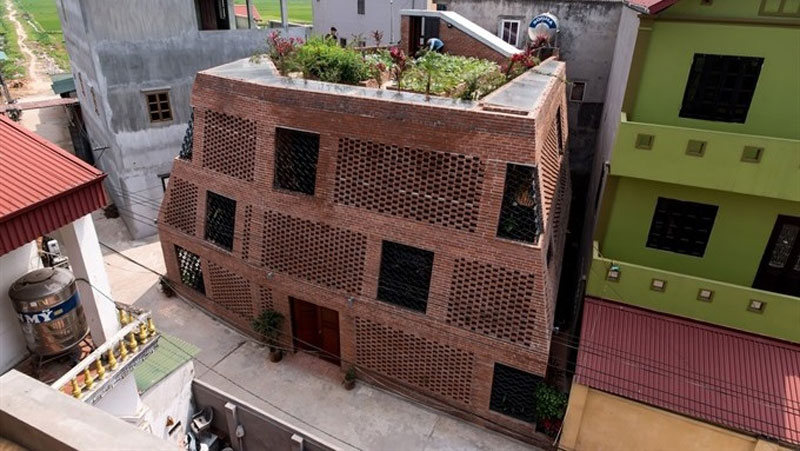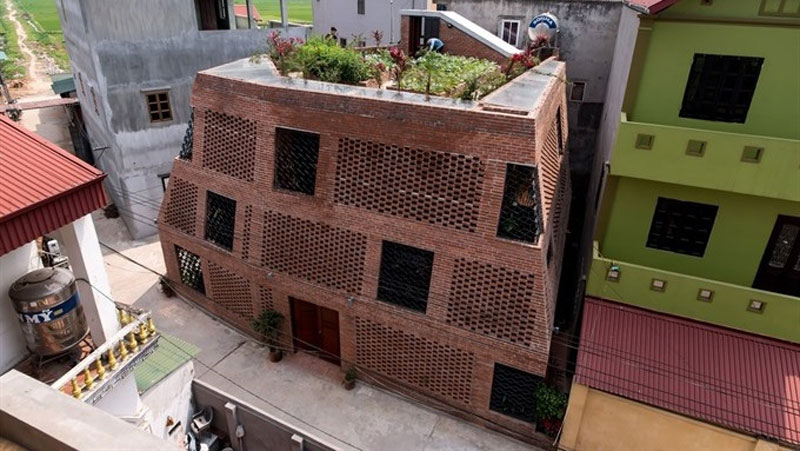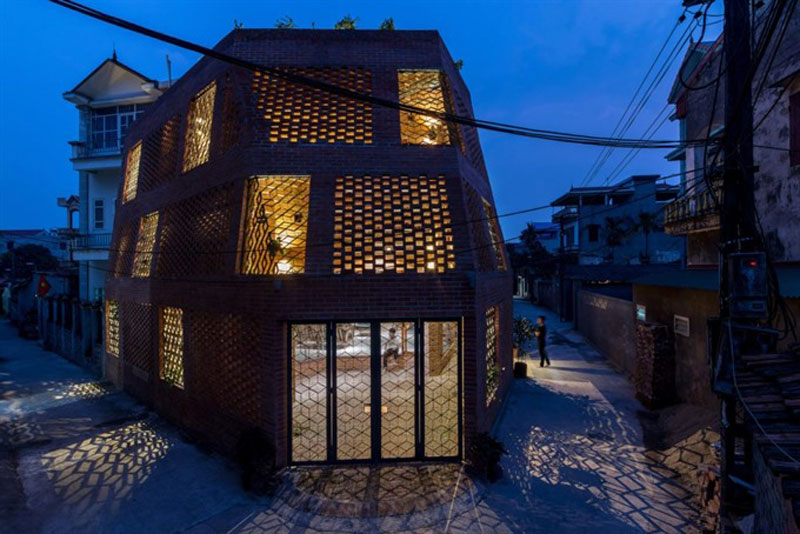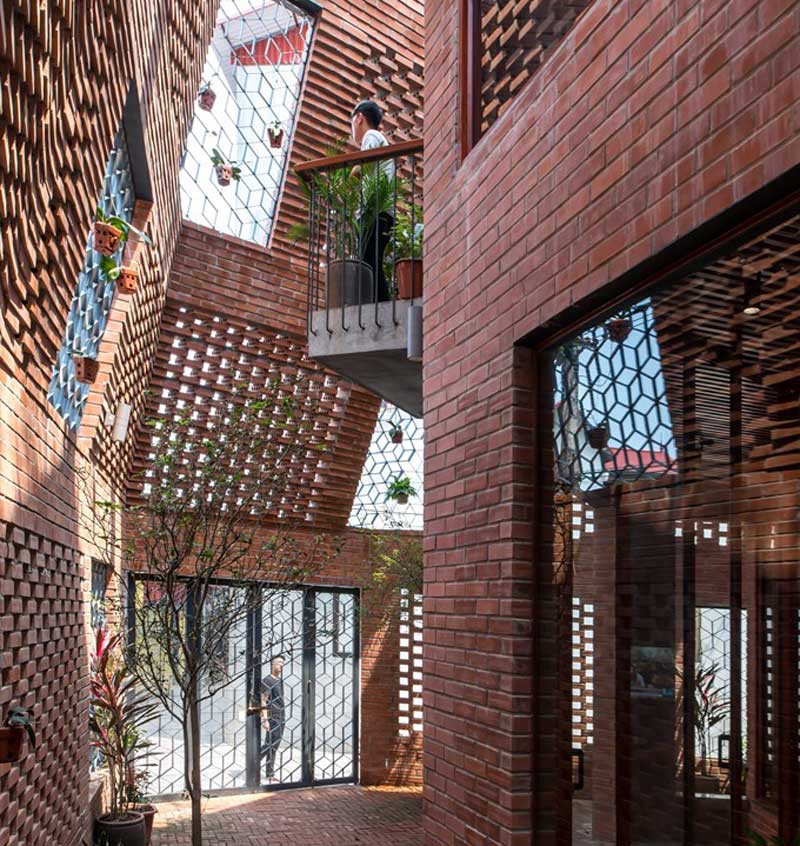
Vietnamese design company H&P Architects has recently been named among the July Winners and Popular Choice Winners of the Architizer A+Awards.

The Brick Cave’s
structure resembles a cave.
The company was awarded for its Brick Cave design in a
suburban commune of Hanoi in the Private House and Architecture + Brick
categories.
The Architizer A+Awards focus on promoting and celebrating
the year’s best architectural works. Its mission is to nurture the appreciation
of architecture in the world and champion its potential for a positive impact
on everyday life.
The A+Awards live at Architizer.com is a large online
community of architects. Entries are judged by a panel of more than 400
distinguished luminaries and thought leaders from fields as diverse as fashion,
publishing, product design, real estate development and tech. Finalists and
winners are recognised as the year’s most influential visionaries.
This year, more than 5,000 entries from over 100 nations
competed for the awards.
The Brick Cave was built in 2007 covering nearly 300sq.m and
designed with a philosophy that it will help shape a place similar to the
natural environment in an artificial manner.
The overall structure is made up of and enclosed by two
layers of brick wall meeting at an intersection, with alternate ‘green’
arrangements of plants and vegetables. The two layers function as a filter to
eliminate the adverse aspects of the environment and bring nature to where
necessary inside.

The combination of
"close” and "open” creates diverse relations with the surroundings.

The overall structure
is made up of two layers of bricks meeting at an intersection, with alternate
‘green’ arrangements of plants and vegetables.
Source: NDO
With an increasingly vibrant and widespread emulation movement aimed at building cultured residential areas and cultured families, Yen Thuy District has been making steady progress toward improving both the material and spiritual well-being of its people, while fostering a civilized, prosperous, beautiful, and progressive community.
Once lacking recreational spaces and community facilities, Residential Group 2 in Quynh Lam Ward (Hoa Binh City) has recently received attention for the construction of a new, spacious, and fully equipped cultural house. The project followed the model of state support combined with public contributions in both labor and funding.
The "All people unite to build cultural life" movement, which has been effectively integrated with Kim Boi district’s socio-economic development goals, is fostering a lively spirit of emulation across local residential areas, hamlets, villages, public agencies, and enterprises. In addition, through the initiative, traditional cultural values are being preserved and promoted, while community solidarity and mutual support in poverty reduction and economic development are being strengthened.
A working delegation of the Hoa Binh provincial People’s Committee led by its Permanent Vice Chairman Nguyen Van Toan on June 11 inspected the progress of a project to build the Mo Muong Cultural Heritage Conservation Space linked to tourism services in Hop Phong commune, Cao Phong district.
Born and growing in the heroic land of Muong Dong, Dinh Thi Kieu Dung, a resident in Bo town of Kim Boi district, in her childhood was nurtured by the sweet lullabies of her grandmother and mother. These melodies deeply imprinted on her soul, becoming an inseparable part of her love for her ethnic group's culture. For over 20 years, this love for her hometown has driven Dung to research, collect, and pass down the cultural values of the Muong people to future generations.
In the final days of May, the Ethnic Art Troupe of Hoa Binh Province organized performances to serve the people in remote, mountainous, and particularly disadvantaged areas within the province. These were not just ordinary artistic shows, but they were the meaningful journeys aimed at spreading cultural values, enhancing the spiritual life of the people and contributing to the preservation of ethnic minority cultural identities.





